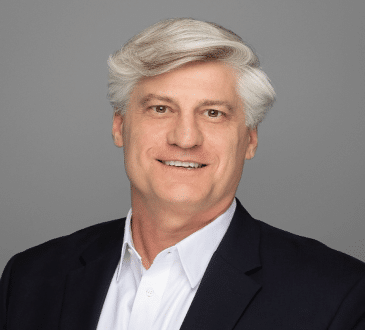CEOs are becoming wealthier but remain contract workers

Minority ownership does not give them much influence
According to the Economic Policy Institute, the compensation paid to the CEOs of the largest US companies has increased 13-fold since 1978, whereas the compensation paid to regular workers has risen by a mere 15%.
Part of the reason for this discrepancy is the growth of the stock market over the past half-century, as a portion of CEO compensation consists of shares in the companies they lead. It turns out that the larger and more global the company, the greater the compensation they can expect. For instance, last year, the CEO of Blackstone, Stephen Shwarzman, received $253 million in compensation. Sundar Pichai, the CEO of Alphabet (Google’s parent company), received $226 million, and the CEO of the car-rental firm Hertz, Stephen Scherr, received $182 million.
On average, American CEOs receive compensation that is 344 times higher than that of ordinary workers, a figure that is truly staggering. In many countries, the immense compensations of CEOs, often disclosed in corporate annual reports, are likely more widely recognized by the general public than the executives’ actual achievements in their roles. This perception can lead to reputational issues for business leaders worldwide and, in certain countries, may even trigger specific sanctions risks.
How fair is this, considering that the entire modern global economy relies on this meritocracy? Take Russia, for instance, which began its transition to a market economy only 30 years ago. Social inequality there is even more pronounced than in developed economies, with workers receiving even less, and some CEOs amassing more wealth than their American and European counterparts. But this doesn’t make them exclusively valuable for the political landscape as they remain – highly paid – but still employees subordinate to will of shareholders.
Before the military conflict between Russia and Ukraine, Forbes Russia magazine published a ranking of the top 20 Russian CEOs with the most valuable stock packages. It turned out that they owned shares worth $4.2 billion, which averaged out to $210 million per person. (Since then, the capitalisation of the Russian stock market has declined significantly, and some CEOs have stepped down or sold their stakes.)
CEOs on this list are not industrial magnates or infamous Russian oligarchs. They are just as much hired managers as their foreign colleagues. Many of them even studied or earned MBA degrees at Western universities. Moreover, as researchers have pointed out, Russian CEOs, despite their generous compensation, are often more powerless than their Western counterparts. In Russian private businesses, important decisions are traditionally made by majority owners.
At the time, the Forbes ranking included individuals such as Alexander Shulgin, CEO of the online marketplace Ozon; Dmitry Konov, CEO of the petrochemical holding SIBUR; and Vladimir Rashevsky, who initially headed the coal company SUEK and later the fertiliser producer EuroChem. All of them had to step down in 2022 as a result of personal sanctions imposed on them by the European Union.
It must be acknowledged that the EU sanctions against Russian state-owned resource companies and their managers have been effective. Russia’s income from exports is dwindling, meaning less funding for military operations. Furthermore, the state elite are no longer as cohesive as they once were.
However, the inclusion of private companies’ executives on sanctions lists has not yielded visible results in the fight against the regime. It turns out that decisions about which individuals to add to sanctions lists were hastily made and lacked sufficient justification. The same thing occurred previously when the EU rushed to impose sanctions against businesspeople from Iran and Syria.
The justifications for sanctions against all Russian businesspeople – from Putin’s associates to white-collar employees of private companies – were roughly formulated in the same manner: with a focus on “influential businesspeople” from companies that “pay taxes to the budget of the Russian Federation”.
In September, former Ozon CEO Shulgin managed to prove in an EU court that he had ceased being “influential” after leaving the company nearly a year and a half ago. The European Union decided not to renew personal sanctions against him. Similarly, sanctions were lifted against the former gas industry executive Farkhad Akhmedov in the EU, the former investment banker Elena Titova in the United States, and the former First Deputy Chairman of Sberbank Lev Khasis in the United Kingdom. Dozens of Russian businesspeople continue to litigate.
Are officials in Brussels willing to acknowledge and rectify the mistakes made when imposing sanctions? After all, a more thoughtful approach would render sanctions more effective.
Have you read?
Countries With The Highest And Lowest Average Salaries, 2023.
Best Fashion Schools In The World.
Best Business Schools In The World.
The World’s Best CEOs And C-Suite Executives, 2023.
World’s Most Influential and Innovative Companies.
World’s Best Hospitality And Hotel Management Schools.
Bring the best of the CEOWORLD magazine's global journalism to audiences in the United States and around the world. - Add CEOWORLD magazine to your Google News feed.
Follow CEOWORLD magazine headlines on: Google News, LinkedIn, Twitter, and Facebook.
Copyright 2025 The CEOWORLD magazine. All rights reserved. This material (and any extract from it) must not be copied, redistributed or placed on any website, without CEOWORLD magazine' prior written consent. For media queries, please contact: info@ceoworld.biz








